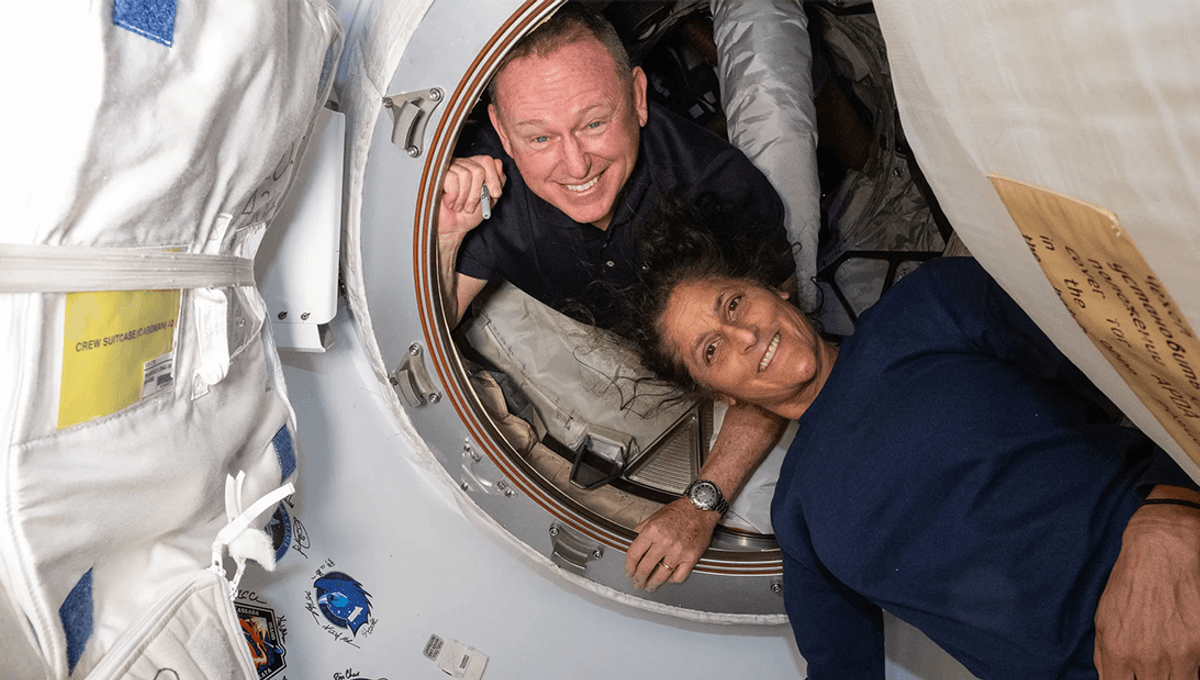
Sunita “Suni” Williams and Barry “Butch” Wilmore departed for the International Space Station on June 5 2024, the third and final test of Boeing’s new Starliner capsule, and its first launch with a crew. The mission was only expected to last for eight days before the two returned to Earth, but due to problems with Starliner the two remain on board on the space station today.
ADVERTISEMENT GO AD FREE
The astronauts, both no stranger to a little time on the ISS, do not seem too unhappy with the situation.
“We’re doing pretty darn good, actually. You know, we’ve got food, we’ve got clothes. We have great crew members up here,” Willams told CNN in an interview that aired on Friday, February 13.
“We don’t feel abandoned. We don’t feel stuck. We don’t feel stranded,” Wilmore added. “I understand why others may think that. We come prepared. We come committed. That is what your human spaceflight program is: It prepares for any and all contingencies that we can conceive of, and we prepare for those.”
While up there, Williams even set a new record. Earlier this month, both astronauts left the safety of the space station to conduct a space walk. On that EVA Williams broke the record for total spacewalking time by a woman and was even photographed by an amateur astronomer below.
“Williams made history during last week’s spacewalk,” NASA said in a blog post. “She surpassed former NASA astronaut Peggy Whitson’s record for total spacewalking time by a female astronaut. Williams now has 62 hours, 6 minutes of total spacewalk time, fourth on NASA’s all-time list.”
Do astronauts get paid overtime?
So, other than being able to live in space for a while longer, which astronauts are known to be partial to, do they receive any other benefits for their unexpectedly long stay on board the ISS? According to former astronaut Catherine “Cady” Coleman, the answer is pretty much “no”. While on board the space station, astronauts receive regular payment, rather than any kind of boosted overtime pay, while NASA takes care of living expenses and food on the ISS. However “there is some small amount of money per day for incidentals that they end up being legally obligated to pay you,” Coleman told the Washingtonian.
For Coleman, who spent 159 days on board the ISS in 2010-11, this amounted to around $4 per day in space.
As sweet as those $4 payments may be, the Williams and Wilmore are now preparing to return to Earth in a little over a month.
“Right now, the plan is that Crew 10 will launch on March 12. They’ll come here, rendezvous, and dock. We’ll do a turnover for about a week and we will return on or about March 19,” Wilmore told CNN.
ADVERTISEMENT GO AD FREE
“We bring crews to and from the Space Station. We have a period of time where those things take place. And to alter that cycle sends ripple effects all the way down the chain,” he added, explaining why they could not depart sooner. “We would never expect [them] to come back special just for us or anyone unless it was a medical issue or something really, really out of the circumstances along those lines. So we need to keep the normal cycle going.”
Source Link: Do The NASA Astronauts Stuck On The ISS Get Paid Overtime?